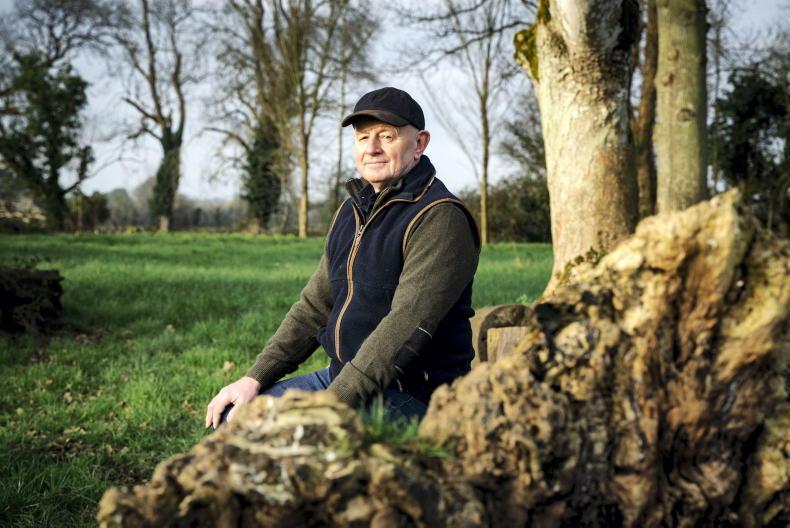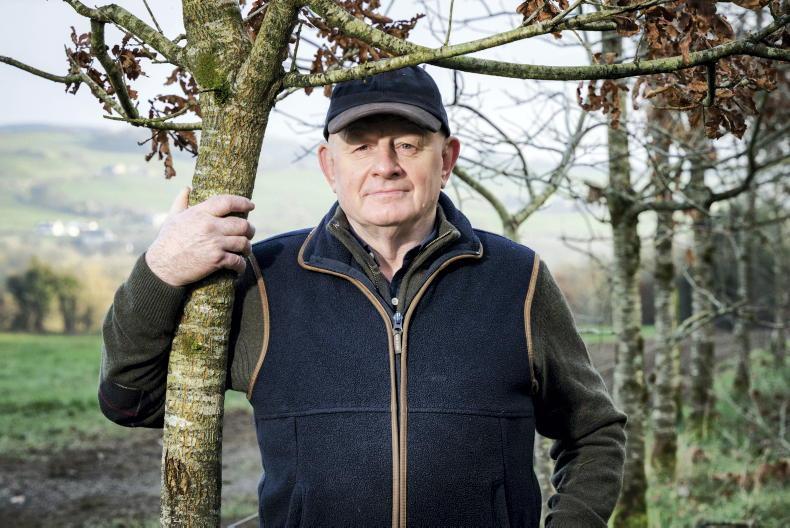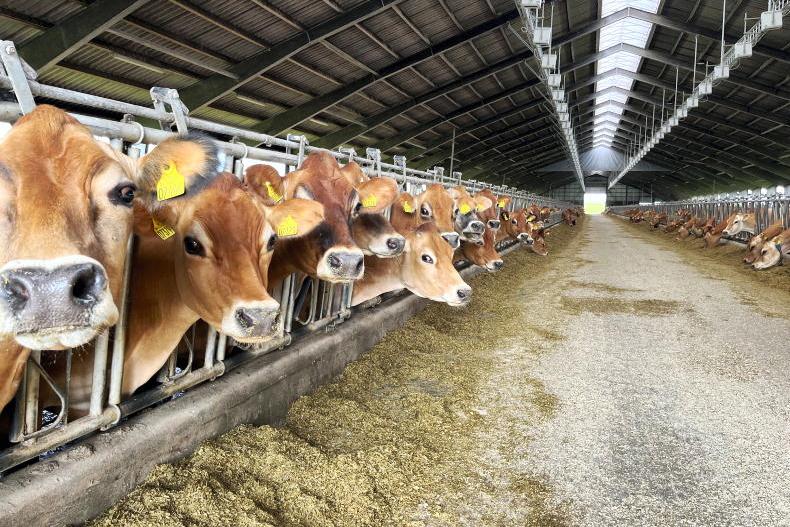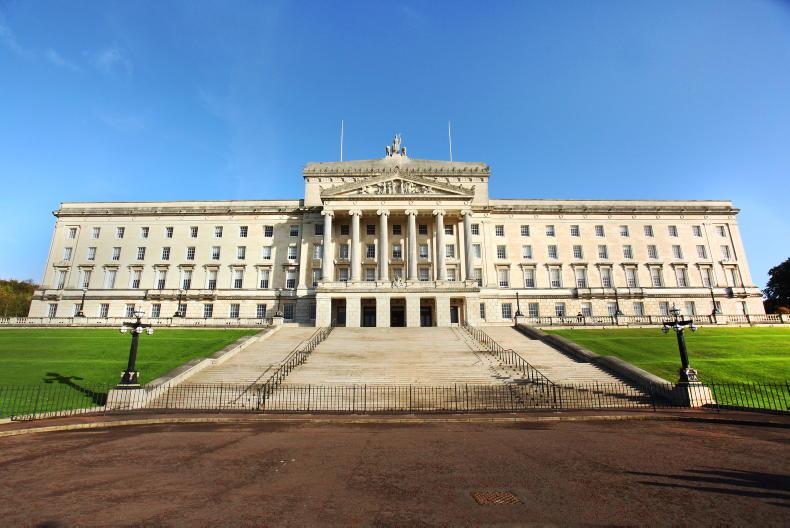A legal challenge from farmers to the Government’s climate change policy is almost inevitable, according to John Hourigan.
The Limerick dairy farmer and forestry owner is chair of the Carbon Removals Action Group (CRAG), an organisation that has sought to champion farmer interests in the volatile policy environment that the climate crisis has engendered.
Hourigan said the basis of the legal action was fairly simple.
“We [farmers and forestry owners] are not being allowed our carbon removals against our emissions,” he explained.
“We are entitled to our net carbon footprint, first and foremost. It was enshrined under [Senator] Tim Lombard’s amendment to the Climate Bill, but it was ignored immediately afterwards.”
Hourigan said CRAG had engaged legal counsel to assess its position, and the organisation is confident that it has a case.
Along with defending farmer interests in relation to carbon, CRAG has also been vocal in challenging the science around the measurement of methane emissions from livestock (biogenic methane), and its impact in terms of climate change.
Hourigan and his supporters maintain that the manner in which biogenic methane is currently assessed overstates the impact of livestock-associated emissions on global warming.
While this position is strenuously contested by environmental groups, it has attracted the support of some scientific heavyweights such as Professor Myles Allen, head of the Climate Dynamics Group at the University of Oxford.
CRAG was instrumental in getting Prof Allen to appear at a recent Oireachtas Agriculture Committee meeting where he claimed that climate activists needed to focus on heavy industry rather than concentrating disproportionately on farming.
Allen pointed out that eliminating methane emissions from global livestock farming entirely would shave a few hundredths of a degree off global temperatures over the next two decades, but CO2 from fossil fuels was driving up global temperatures by two-tenths of a degree per decade.
However, Hourigan accepted that Allen’s evidence is unlikely to shift Government policy.
“Farming has lost the PR battle on the climate issue. The only place to go now is the courts.”
Hourigan is certainly not a climate-change denier. He accepts that global warming is a fact, and is “real and accelerating”.
“Climate change is happening, and happening before our eyes. It is a big concern,” he said.
However, he contends that there is an unfair emphasis on the impact of agriculture on global warming. Fossil fuel usage and heavy industry are the real culprits, not cows, as far as the Limerick farmer is concerned.
“Climate change is real and accelerating but it is the consequence of new activities, not the consequence of established activities that have turned rogue,” Hourigan said.
The chair of CRAG said the efforts of Minister for Transport Eamon Ryan to deal with the recent gridlock in Dublin Airport illustrated the State’s double standards in relation to climate change.

He questioned how Minister Ryan could, on the one hand, act to facilitate increased air travel – with all the associated aviation fuel usage and carbon emissions – while at the same time seeking a cut in beef and dairy cow numbers in order to meet climate ceilings.
Hourigan is adamant that farmers deserve to be treated with greater fairness in the manner in which their carbon emissions are calculated.
He said allowing farmers to measure and use the carbon removed by their grasslands, hedgerows and trees was central to this process.
Seeking to get a more complete carbon emissions measure for his own farm was the trigger which ultimately led to the formation of CRAG.
Bord Bia measured the emissions from his farm at Murroe in east Limerick but no account was taken of the carbon sequestered by his forestry plantations or grazing ground.
At the time, Hourigan had 200ac of forestry – 100ac of which has since been sold – as well as carrying 140 dairy cows on 240ac of owned and rented land. The home farm also carries replacements, drystock and a few horses.
“Our carbon position in 2019 according to a Bord Bia audit was that the farm was emitting 717t of CO2,” he said.
However, Hourigan estimated that when the carbon removals from his forestry plantations and his grassland were taken into account, the farm was actually net carbon neutral.
“The farm was net carbon neutral when everything was taken into account. And my understanding was that the Government wanted the country to become net carbon neutral, and the way you did that was to get as many sectors as possible net carbon neutral. It adds up,” he said.
However, since he was not allowed to offset his farm’s carbon removals against its emissions, Hourigan opted to trade them in the voluntary market to commercial entities.
The publicity this move attracted ultimately led to the formation of CRAG, as a number of farmers and forestry owners in a similar position sought to establish ownership of the carbon sequestered by their ?holdings. The absence of action on the part of the farm organisations was also a factor, he said, adding that the main farm bodies “were asleep at the wheel” on carbon.
A collapse in dairy commodity prices is unlikely given the reduced milk output globally, John Hourigan maintained.
However, he warned that the possible introduction of “carbon penalties” over the next decade could totally erode the sector’s profitability.
Hourigan blamed the recent drop in global dairy output on a mix of increased input costs and the more restrictive regulatory environment.
“All of these restrictions and pressures on farming are going to make food scarcer and dearer,” he argued.
With regard to the Nitrates Derogation, the Limerick farmer claimed that tighter controls would have little impact on his farming operations as his holding is “relatively lightly stocked”.
However, he maintained that the push to severely restrict nitrogen usage across Europe will have a devastating impact on food output.
Hourigan said his preference would be to “farm organically” but the reality of commercial agriculture was that nitrogen boosted output.
“People have this idea that you can suddenly stop using nitrogen and everything is grand,” he said.
“But if you restrict nitrogen usage you will have to do it globally, and that will cause mass starvation, mass hunger and mass migration. So preventing mass migration and mass hunger is totally dependent on nitrogen.”
Returning to the issue of emissions, Hourigan warned that the dairy sector potentially faced an existential threat from the imposition of what he described as “carbon penalties”.
“There is a danger that the carbon cost of producing milk could be levied on farmers in the form of carbon penalties within 10 years,” he said.
Figures as high as 20c/l had been touted, Hourigan claimed.
When challenged that penalties of this magnitude were unlikely to be levied on dairy farmers, the CRAG chair countered that agriculture had already been painted as the climate villain and its standing was weakened and undermined as a consequence. “We are being manoeuvred into a position where these penalties are possible by the authorities not allowing our carbon removals, and being stitched up on methane.”
John Hourigan is adamant that farmers “should not plant a tree” until the dispute around the ownership of the carbon removed by forestry has been finally settled.
CRAG firmly believes the carbon sequestered by trees, hedgerows and grassland is the property of the farmer or plantation owner – a view that is not shared by the Government and others.
CRAG is equally convinced that the carbon stored by plantations will eventually become as valuable as the timber sold from forests.
“We’re advising farmers not to plant a tree until such time as we’re allowed our carbon credits,” Hourigan said.
“The most valuable attribute of trees, down the line, is their ability to remove CO2. That’s the most important aspect of the debate around forestry,” he insisted.
Forestry licences
He dismissed the current furore regarding forestry licences as peripheral to the real debate around carbon removals.
“At the moment we have a Government that genuinely believes that they can bully us [farmers and landowners], cajole us or bribe us into planting trees to help reduce global warming, and then keep the [carbon] credits for themselves,” Hourigan pointed out.
He said it was a similar story with regard to solar panels and anaerobic digestion, with the carbon benefits from these enterprises being ring-fenced for the energy sector.
CRAG is focused on establishing farmer ownership of the carbon sequestered by their lands, Hourigan insisted.
The Limerick milk supplier questioned why farmers were continually being portrayed as the climate “bold boys”, while it was their forests, their hedgerows and fields, their anaerobic digesters, and solar and wind farms on their lands that were central to reducing carbon emissions.
Tea or coffee? “I drink green tea nearly all the time.”
Favourite film? "
“Michael Collins.”
The last book you read? “William Francis Butler: A Life.”
Any hobbies? “I hunt, I shoot, I go to hurling and rugby matches, I drink porter – all good healthy outlets.”.
Favourite holiday? “I’m a hunting man, I’m joint-master of the Black and Tans; so I’d say my favourite holiday was a week I spent in England hunting with the various packs there.”









SHARING OPTIONS